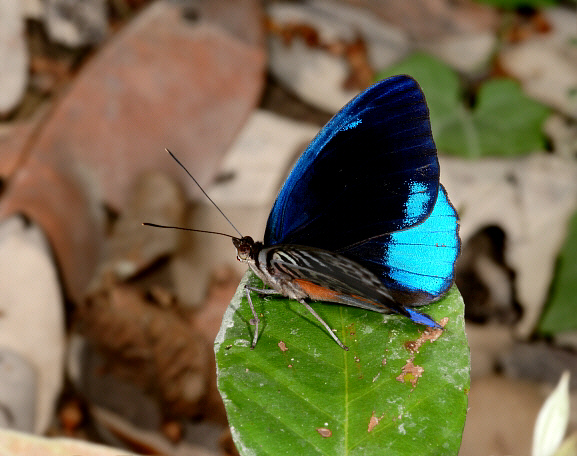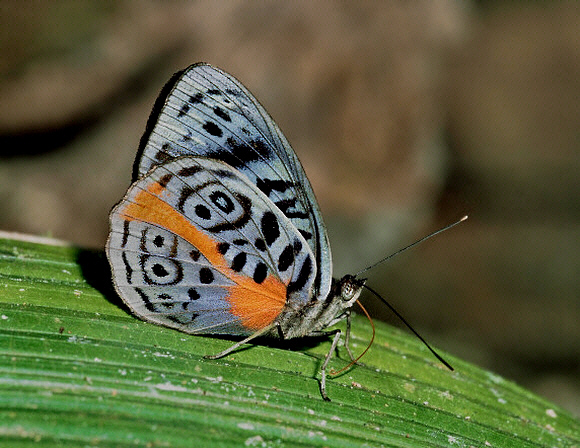 Eunica sophonisba, Rio Madre de Dios, Peru – Adrian Hoskins
Eunica sophonisba, Rio Madre de Dios, Peru – Adrian Hoskins
Introduction
The genus Eunica contains 40 species colloquially known as Purplewings due to the dazzling purple or metallic blue iridescence on the uppersides of the males. Females lack the iridescence, and are typically a dull earthy brown colour with a diagonal white band across the forewings. The underside hindwings of most species are beautifully marbled, and bear a distinctive arrangement of ocelli.
Eunica sophonisba is one of the most spectacular species with an intense blue-purple iridescence. The closely related species chlororhoa is similar but reflects metallic green instead of blue from the upperside hindwings.
Eunica sophonisba occurs in Venezuela, Surinam, Ecuador, Peru, Brazil and Bolivia.
 Eunica sophonisba, Rio Madre de Dios, Peru – Adrian Hoskins
Eunica sophonisba, Rio Madre de Dios, Peru – Adrian Hoskins
Habitats
This species inhabits lowland primary rainforest at elevations between about 100-900m.
Lifecycle
The lifecycle of Eunica species in general is poorly known and I can find no published details of the early stages of this species. The eggs of most Eunica species are laid singly on the flowers and leaf buds of trees including Mabea ( Euphorbiaceae ) and Bursera ( Burseraceea ). The larvae are likely to vary considerably in colouration and pattern from species to species, but generally have short spines along the sides, and a single row of longer erect spines on the last 3 segments of the body.
Adult behaviour
Males of this species inhabit light gaps within the forest, and adopt territorial perches, typically on the foliage of low tree branches, from which they dart out at high speed to intercept other passing butterflies. As they do so, the wings reflect shades of blue so intense that they make many Morpho species seem insipid by comparison.
